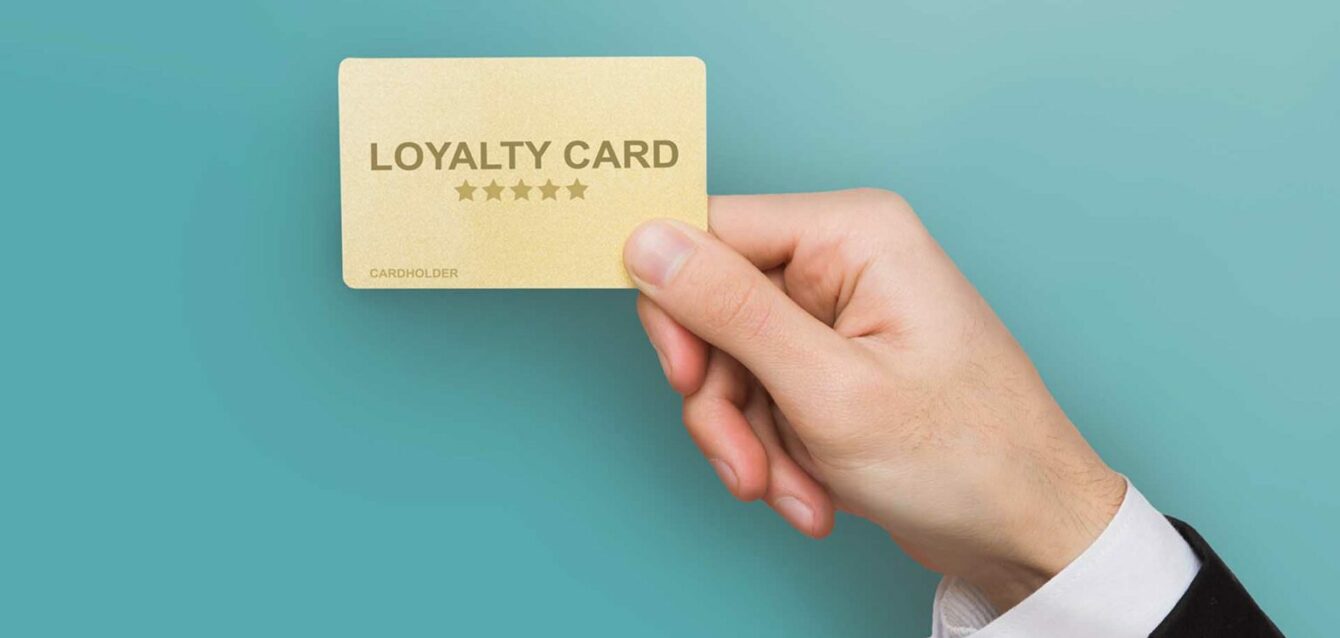Guest loyalty is the backbone of making a hotel sustainably successful. By guest loyalty, I’m referring to the likelihood of a guest to repeatedly choose to stay at a particular hotel, hostel or accommodation. There are a myriad of different elements that come into building a loyal guest base for a hotel, but some of the key elements or drivers of loyalty are creating positive experiences, providing a personalized service, and fostering strong emotional connections between your hotel and the guest.
Let’s dive a little deeper. Here are some key general drivers of guest loyalty for hotels:
1. High-quality service
Exceptional service is one of the most critical factors influencing guest loyalty. This encompasses everything from a smooth check-in process to attentive housekeeping and prompt resolution of any issues. Efficient and friendly service is paramount.
2. Great amenities
The variety and quality of amenities offered play a significant role. Consider factors like comfortable beds, cleanliness, a well-equipped fitness center, a relaxing spa, or a delicious on-site restaurant.
3. Location
Proximity to attractions, business centers, transportation hubs, or other points of interest can influence guest loyalty. Convenience and accessibility often play a crucial role in guests’ choice of hotels and their likelihood to return.
4. Value Proposition
Guests want to feel like they’re getting their money’s worth. Offering competitive rates and packages relative to the quality of service provided enhances guest satisfaction and loyalty.
5. Brand Reputation
The reputation and brand image of the hotel play a significant role in guest loyalty. Positive reviews, word-of-mouth recommendations, and consistent branding contribute to building trust and loyalty among guests.
6. Personalization
Train your staff to prioritize guest satisfaction and deliver personalized service that exceeds expectations. Tailoring services and experiences to meet the individual preferences and needs of guests can enhance their overall satisfaction and loyalty.
7. Loyalty Programs
Reward programs offering perks such as discounts, free stays, upgrades, or exclusive offers can significantly influence guest loyalty. Guests are more likely to return and book directly through your hotel if they feel appreciated and rewarded for their loyalty.
8. Booking Experience
An intuitive and user-friendly website, easy booking process, and positive online reviews and ratings can influence guests’ decisions to choose and return to a particular hotel.
9. Social Responsibility and Sustainability
Increasingly, guests are considering the environmental and social impact of their choices. Hotels that demonstrate commitment to sustainability and social responsibility may attract and retain more loyal guests.
Clearly some of these items listed above (such as location) cannot be changed, but we can use that to set the stage for how we can tackle the problem and improve guest loyalty going forward.
The Significance of Direct Bookings as it relates to guest loyalty
When guests book directly, the hotel has greater control over pricing, policies, and the overall guest experience and journey. The hotel also benefits from lower acquisition costs, which most importantly, results in higher profit margins. To make this a reality, we must first built a platform to give the guests a reason to book direct and that is conducive with driving guest loyalty:
Here are some example benefits you can give your guests
- Give Competitive Rates: Offer your guests lower or rates on par with all other booking channels. Make it an easy decision for the guest to book directly with you, by offering a value proposition. You may offer exclusive discounts, promotions, or member-only rates to incentivize direct bookings, resulting in cost savings for guests or alternatively, you can offer value-added benefits or services which have a limited cost for the hotel, but have a high perceived value to a guest.
- Offer Flexibility: You may wish to be more strict with your booking and cancellation policies on the OTA and offline agent channels, but with your direct channels, you can afford to be a bit more flexible on things like room preferences, special arrangements, or modifying existing reservations. This will encourage loyalty to your hotel and help convince guests to re-book with you due to the positive interaction they had with your hotel.
- Provide Loyalty Benefits: Many hotel’s offer loyalty programs which give points or discounts or perks for booking directly or returning to the hotel. By providing a member or loyalty program, guests have an incentive to be loyal to your brand and to book by your official direct channels. You may wish to offer members things which have a low cost but high perceived value, such as room upgrades, early-access to promotions, F&B discounts and more.
- Be transparent: Nothing infuriates guests like hotels not being transparent about terms and conditions. Be clear about all the terms, conditions, payment policies, cancellation policies and don’t surprise guests with hidden fees. Communication is important and the more clear your messaging can be, the more likely guests are to feel comfortable to re-book at your hotel.
Here are some of the key benefits of driving guest loyalty for your hotel
Your hotel can expect to reap the rewards over the long term if you can successfully foster an environment where guests wish to return to your hotel. Here are some of the key benefits of driving loyalty at your hotel, showing why time spent on loyalty and member programs is well spent:
- Results in higher Profit Margins: Avoiding OTA commission fees allows your hotel to keep a larger portion of the booking revenue. This translates to higher profits and greater financial stability in the longer term.Loyal guests are more likely to book directly with a hotel for their subsequent stays. They have already experienced the quality of service, amenities, and overall guest experience offered by the hotel, which increases their confidence in booking directly.
- Provides more Data and Guest Insights: Direct bookings allow your hotel to own the guests booking journey and to collect valuable guest data and insights that can be used to improve marketing strategies, personalize guest experiences, and drive loyalty. By owning the guest relationship, you can better understand guest preferences, behaviors, and booking patterns, enabling more targeted and effective marketing efforts.
- Builds Direct Relationships with guests: Direct bookings foster a stronger connection with guests. You can collect valuable data, personalize communication, and build brand loyalty directly with your customers.
- Gives more Brand Control and Loyalty: Direct bookings help your hotel maintain control over their brand image, messaging, and customer experience. By encouraging guests to book directly, you can reinforce brand loyalty and affinity, differentiate themselves from competitors, and build a loyal customer base that continues to choose your property for future stays.
- Allows greater control over Inventory and Rates: You have more control over your room inventory and pricing strategies when bookings are made directly, meaning you can offer dynamic pricing or last-minute deals to optimize occupancy rates.
- Increases average spend on property: Loyal guests on average tend to spend more per stay. They might be more likely to upgrade their room, dine at the hotel, use room service, use onsite amenities more (spa, fitness) and book longer stays.
- Loyal Guests can be brand ambassadors: Loyal guests who have had good experiences at your hotel are more likely to become brand advocates and recommend the hotel to others. Their positive reviews, recommendations, and social media mentions can significantly influence others to choose your hotel.
Measuring & evaluating the performance of your hotels guest loyalty program
As with all elements of the marketing mix, to improve performance over time, measurement is key. We need to track the results of our marketing efforts in order to ensure that the marketing budget and time is being spent efficiently. Here are some of the key methods or metrics you can use to evaluate your hotels performance in the area of guest loyalty:
- Membership Growth: Create a member program and track the number of new members joining the loyalty program over a specific period of time. This indicates the effectiveness of marketing efforts and the program’s attractiveness to guests.
- Member Engagement: Measure the level of member activity within the loyalty program:
- Points Earned or Redeemed: Track your members’ activity within the program. High redemption rates suggest valuable rewards, while low rates might indicate unattractive rewards or unclear redemption processes.
- App Usage/Website Login Frequency: This shows active participation in the program. Frequent logins suggest program value and engagement.
- Survey Responses: Direct feedback through surveys is a great way of getting insightful information and can reveal member satisfaction with program benefits and identify areas for improvement.
- Retention Rate: Calculate the percentage of your loyalty program members who remain active and continue to engage with the program over time. A high retention rate indicates strong member loyalty and satisfaction.
- Revenue Generated from Loyalty Program: Track the total revenue derived from all program activity including:
- Points Redemptions: Revenue generated when members use points for room stays, upgrades, or other offerings.
- Upselling/Cross-selling: Revenue from members opting for premium services or add-ons due to program benefits.
- Direct Bookings: Revenue generated when loyalty program members choose to book directly through the hotel’s channel (website or app).
Measuring & evaluating the performance of your hotels overall direct booking
Not all return guests will book via your member program, so it’s important to also measure the overall impact of your loyalty program and benchmarks to help you evaluate your progress. Here are some of the key indicators and metrics that you should be monitoring to assess your hotels overall performance:
- Direct Booking Share: Measure the percentage of total bookings that come directly through your hotel’s website, mobile app, or phone reservations. A higher direct booking share indicates the effectiveness of direct booking strategies in reducing reliance on third-party channels.
- Conversion Rate: Track the percentage of website visitors who complete a booking transaction. A high conversion rate signifies an optimized booking process and effective website design.
- Revenue from Direct Bookings: Measure the total revenue generated from direct bookings, including room revenue, ancillary sales, and upsells. Increasing revenue from direct bookings demonstrates the success of direct booking strategies in driving revenue growth.
- Cost per Acquisition (CPA): Compare the CPA for direct bookings to the cost of acquiring guests through OTAs to assess the efficiency of direct booking strategies in reducing distribution costs. A lower CPA for direct bookings indicates a more cost-effective acquisition strategy.
- Return on Investment (ROI): Evaluate the ROI of marketing campaigns and promotions designed to promote the loyalty program and increase hotel direct bookings. Measure the revenue generated from campaign-specific bookings relative to the cost of marketing efforts.
- Net Promoter Score (NPS): Measure guests’ likelihood to recommend the hotel or loyalty program to others. A high NPS indicates strong guest satisfaction and loyalty.
- Repeat Booking Rate: Calculate the percentage of guests who make repeat bookings with the hotel after joining the loyalty program or booking directly. A high repeat booking rate demonstrates guest loyalty and the effectiveness of retention strategies.
- Social Media Engagement: Track social media interactions related to your loyalty program and direct booking initiatives. This can gauge guest sentiment and program awareness.
The Key Takeaways
By fostering guest loyalty at your hotel, you can improve your profit margins by reducing your acquisition costs and build a more sustainable future for your hotel. With all the major OTA offering loyalty or member programs, it’s important now more than ever that hotels fight back and one way that can be done is by creating your own member program.
At The Percentage Company, we recently launched version 4 of our booking engine for hotels, with amazing integrated features for CRM and member programs for your hotel. Ask us for a demo or more information about how our system can help take your hotel website to the next level and drive loyalty like never before.
Read about our new hotel booking engine with built in member program here.

Written By: Edward Kennedy
Co-Founder & Director at The Percentage Company. I started working on websites in 1997 and have been a full-time techie since 2001. I’m committed to leveraging the latest technologies and digital marketing techniques to drive efficiency & improve online sales for our hotel clients. I have a 20+ year track record of success in growing independent hospitality & real estate brands.






